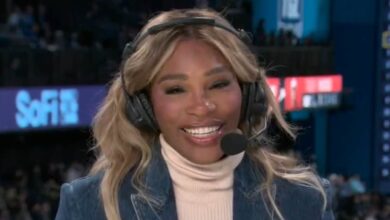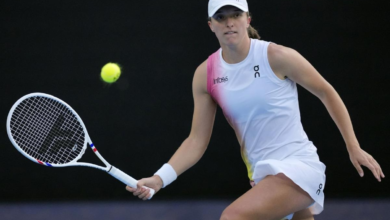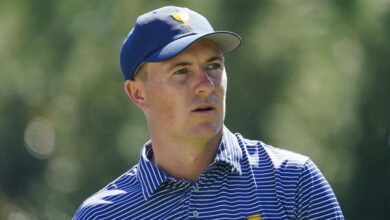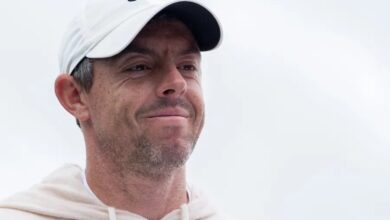Steve Stricker: Bryson-Brooks Feud Has Been ‘Put to Bed’ Before the Ryder Cup, they don’t have to be friends, they just can’t be enemies
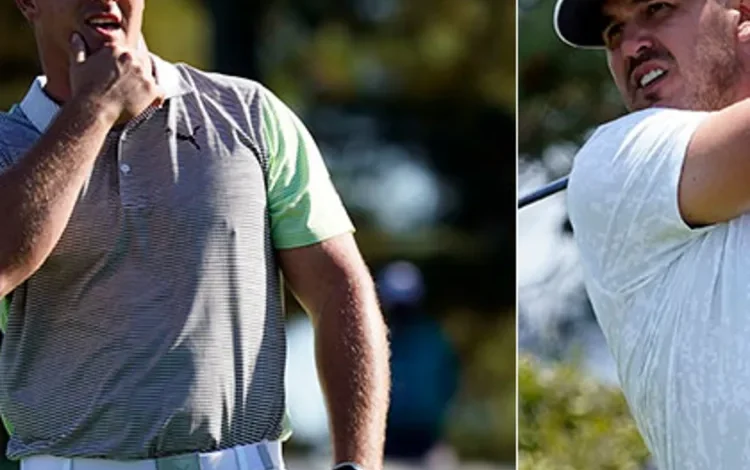
A truce has been ordered, a ceasefire deployed. The snarky war of words between Bryson DeChambeau and Brooks Koepka, perhaps the most hackneyed and persistent golf story of 2021, has been benched by United States Ryder Cup captain Steve Stricker, who has made it clear to both men that he won’t tolerate such shenanigans when the Americans host Europe next month at Whistling Straits.
Stricker spoke to DeChambeau and Koepka in separate phone conversations last week to express his concern about their ongoing rift and the effect it could have on the U.S. squad.
“They assured me that the team and the country and everything else that goes into this is their [top priority],” Stricker said Monday evening. “They said it’s not going to be an issue, and I believe them. I trust them. As far as I’m concerned, it’s been put to bed.”
Stricker spoke to DeChambeau and Koepka in separate phone conversations last week to express his concern about their ongoing rift and the effect it could have on the U.S. squad.
“They assured me that the team and the country and everything else that goes into this is their [top priority],” Stricker said Monday evening. “They said it’s not going to be an issue, and I believe them. I trust them. As far as I’m concerned, it’s been put to bed.”
To the dismay of some and the delight of others, that doesn’t mean the feud is over. As alpha males go, few pro golfers boast higher testosterone levels than Koepka and DeChambeau. Their public sparring, most of it via social media, is a tussle full of muscle. Is it mere coincidence that the skirmish seemed to intensify once the PGA Tour established a $40 million bonus pool to reward the 10 players with the highest Q-rating and other attention-generating criteria?
That was four months ago. Only recently has the tiff been reduced to a simmer, its new spot on the back burner likely due to the skipper’s plea/mandate.
“We haven’t heard Brooks say anything about Bryson lately,” Stricker pointed out. “This Ryder Cup means a lot to these guys. Neither one wants to be the root of a problem. They both understand.”
If coexistence is one thing, collaboration is entirely another. Asked about the possibility that DeChambeau and Koepka might form a partnership in the fourball sessions at Whistling Straits, Stricker all but dismissed the notion.
“I’m not going to tell you there’s no chance,” he replied, “but I don’t see it happening, no. I don’t think they want to play together.”
Fair point, but as far-fetched and risky as a DeChambeau-Koepka pairing may seem, there have been two similar situations at recent Ryder Cups. The most memorable, of course, was Hal Sutton’s decision to package Tiger Woods and Phil Mickelson as a unit for both Friday sessions in 2004. America’s dynamic duo lost twice, producing the loudest backfire in the 94-year history of the matches and precipitating a ridiculous nine-point loss on home soil.
Ten years later, Euro skipper Paul McGinley went in the other direction and got better results. He broke up the successful pairing of Rory McIlroy and Graeme McDowell at a point when the Northern Irishmen were on opposite sides of a contentious lawsuit involving their former management company. Nobody actually cited the legal battle as the reason McGinley split them up, but it stands to reason that bad blood, competitive compatibility and zillions of dollars in commercial earnings aren’t nearly as chummy as the Three Musketeers.
Europe won that Ryder Cup by five. It ended with Mickelson dumping all over U.S. captain Tom Watson in a blaze of frustration, betrayal and acrimony.
“I talked to Strick for about 25 minutes last week, and we spent about half that time discussing the Brooks and Bryson,” 2008 skipper Paul Azinger said. “He knows the risk is the same as the one Hal took with Tiger and Phil, but something like that can work either way. There’s a chance those two guys could create the greatest rallying cry ever — or the whole thing could become a total pain in the ass.”
Stricker also had a related conversation with 2018 captain Jim Furyk, one of his three assistants, a guy whose level-headed nature doesn’t allow much room for manufactured interference.
“Personally, I don’t see [the feud] as being an issue,” Furyk said. “I think it’s kind of funny, to be quite honest with you. I love all the chatter, love all the noise, love all the crap going on outside.”
The problem with losing, which the U.S. has done nine times in the last 11 meetings with the Euros, is that little problems become big ones and big problems become excuses. For all the handwringing to be done over DeChambeau and Koepka between now and the end of September, all will be forgiven and forgotten if the Yanks break their disturbing pattern of winning once every four tries.
They don’t have to be friends; they just can’t be enemies. In all likelihood, this will be the youngest American team ever — nobody close to 40, an average age probably under 30 — which would seem to make camaraderie a more precious commodity. Dustin Johnson, the old man of the bunch at 37, isn’t exactly a natural-born leader. Koepka and DeChambeau, however, possess the type of intensity and take-charge masculinity that might make them the most important players Stricker has.
Setting aside their personal differences for a week in Wisconsin is the least they can do. Carrying this team to a desperately needed victory, something neither Woods nor Mickelson could ever accomplish, would show everyone just how strong these big boys truly are.
